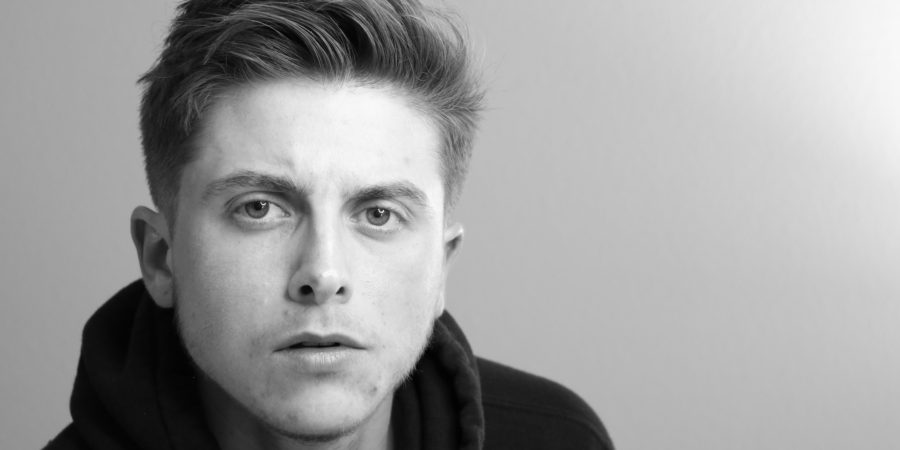Thomas Cole was assigned female at birth, but growing up with two brothers, nobody was surprised that he preferred playing with “boy stuff.” He didn’t want to wear female clothes, but everyone — including himself — thought he was just a tomboy. But something always felt a little off to him, including his attraction to men.
In his early twenties, Thomas married a man named Sam, and a few years later, the two were living in Indiana while Thomas was working on his PhD in engineering. In his mid-twenties, Thomas began seeing a therapist to work through some personal issues, but as he started digging deep, he discovered discomfort with his gender. Having grown up in the Midwest with very little knowledge of LGBTQ issues, it hadn’t occurred to him that he might have been assigned the wrong gender at birth.
Thomas was open with Sam about this revelation, and through a lot of work and processing with both him and the therapist, Thomas eventually concluded that he was a gay trans man — not a straight woman. Everything began to make so much sense, and Sam and Thomas worked hard to successfully navigate the transition together.
As he processed his new identity, Thomas’ therapist urged him to create an Instagram account to connect with the trans community online. Thomas, who wasn’t a fan of social media at the time, reluctantly did so and began looking to others for hope and inspiration, while also sharing his story candidly. He quickly realized the magic of finding a community of people he could relate to.
Thomas also used the account as a way to dabble in his passion for writing. Over time, his account began to grow, and as his transition progressed, he found himself becoming someone who inspired and gave hope to others. Thomas now has 20,000 followers, and he regularly shares his experiences, thoughts, poems, visual transformations and insight into all facets of transition. He also started a weekly series called “Gender Euphoria Friday,” where he posts about the positive experiences of being trans rather than focusing on the negativity of dysphoria.
By day, 29-year-old Thomas works as a postdoctoral research scientist in the San Francisco Bay Area. In his spare time, he creates content for his Instagram account, and he’s also the co-host of Trans IRL, a live weekly show on YouTube for the trans community started by Samantha Filoso, another popular trans figure on Instagram. Thomas loves using this platform to share stories, build community, and educate, and he hopes to one day take on this work full-time.
This is Thomas’ story of stepping into his identity as a man, transitioning while married, building a large and purposeful community online, and developing a passion for storytelling and writing.
Profiles in Pride: When did you realize you were trans, and what did the process of coming out look like for you?
Thomas Cole: It was a process; I didn’t always know this about myself specifically, or at least I didn’t in the terms that come about when you start labeling your gender and sexuality. I didn’t have that education or access or understanding when I was younger. It took me growing up and getting out. I grew up in the Midwest in Missouri, then I went to school in Iowa, and then Indiana.
In my childhood, I was always the tomboy. My whole family just very openly referred to me in that way with that language. I had two older brothers, which doesn’t mean you’re going to grow up masculine, but I had access to “boy things,” so I got to explore and play in my masculinity from a young age. I wasn’t really pushed one way or the other, though my mom would fight to get me into dresses, which I always protested but eventually gave into. I think a lot of my understanding of my childhood me in my gender has been upon reflection, after having come out, being like, “Oh, that makes a little more sense why I always wanted to wear swim trunks!” And why I just never knew why things weren’t lining up for me.
I didn’t start really questioning my gender identity until I was much older, in around 2016 or 2017, when I was 26 or 27. I was doing my PhD in Indiana, and I’d been married to Sam, my husband, since 2014. During that time I was going to therapy, just personally, for some things that in mind at the time were unrelated. As I started to explore a lot of my mental and emotional health, eventually digging underneath, it started to open up all these things for me.
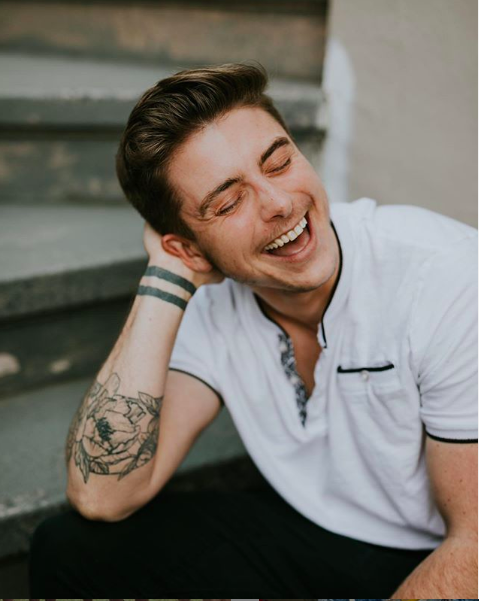
Along that way, I was also personally exploring social media more. I started happening across queer and trans pages, and just seeing people out and discussing their feelings around their own gender identities really started to hit a chord with me. I think this is a very common narrative with people. When I started reading those posts, I was like, “Oh my gosh, not only is this really emotional for me, but it’s feeling very personal. Oh man, what’s going on here?”
Digging into that more through therapy, I eventually started to realize that this sort of unsettled feeling that had characterized my life and my childhood that I’d never had an understanding of or words for was really all about gender, and eventually sexuality. They’re two different things, but they’re often so wrapped together. Because I’ve always been attracted to men, and growing up, everyone told me I was a woman, and this is what society says. So we’ve got it all together!
Then it turns out my life shifted suddenly into focus when I got a better understanding of my gender and my understanding of myself as a man. It was like, “Oh OK, I’m just a gay man!” It explained why I always felt so weird about being attracted to men, in a way of “something’s not quite right here.” Those questions started to relieve themselves.
The whole coming out process was really strung out for me, as I think it is for a lot of people. For me in particular, I was beginning the last year of my PhD at the time. I started slowly coming out to very close friends and people around me, but I was very convinced that I could just wait until after my PhD. It’s silly, but I told myself, “I can just wait until I graduate, and I can go somewhere new for a new job and be a new person and it’ll all work out. I won’t have to deal with any of that BS!”
Of course that was me trying to navigate whatever phase of grief that was; I was hard in the negotiation phase. I thought I could put it off, and I tried for a while. But going to work and trying to interact with people in my day to day, and being constantly misgendered started to really take a toll. Not that people were misgendering me because they knew, because they didn’t — I wasn’t out. But once I had that awareness about myself, it all just very quickly became way too much emotional baggage to carry around and I realized that I couldn’t keep it all in.
Eventually, not too far into the fall of that last year, I took the leap and came out to my advisor first, and then to people I worked with more directly, and my parents. By that time, I’d been on testosterone probably a couple months.
PIP: How did your husband Sam handle it, and how did your transition affect your marriage? It seems like he’s been incredibly supportive.
TC: Honestly, it’s day-to-day living, just like it is in everyone’s marriage. We all kind of transition through different life things together. This is certainly a big one. When it came to coming out, Sam and I never had a moment, like a big sit-down. I had this habit when I was processing all these things and going to therapy I think twice a week. I’d come home, and our nightly conversations would revolve around some of the things I’d talked about in therapy. I was having very open conversations with him all the way, so it was more like he was walking with me through the process.
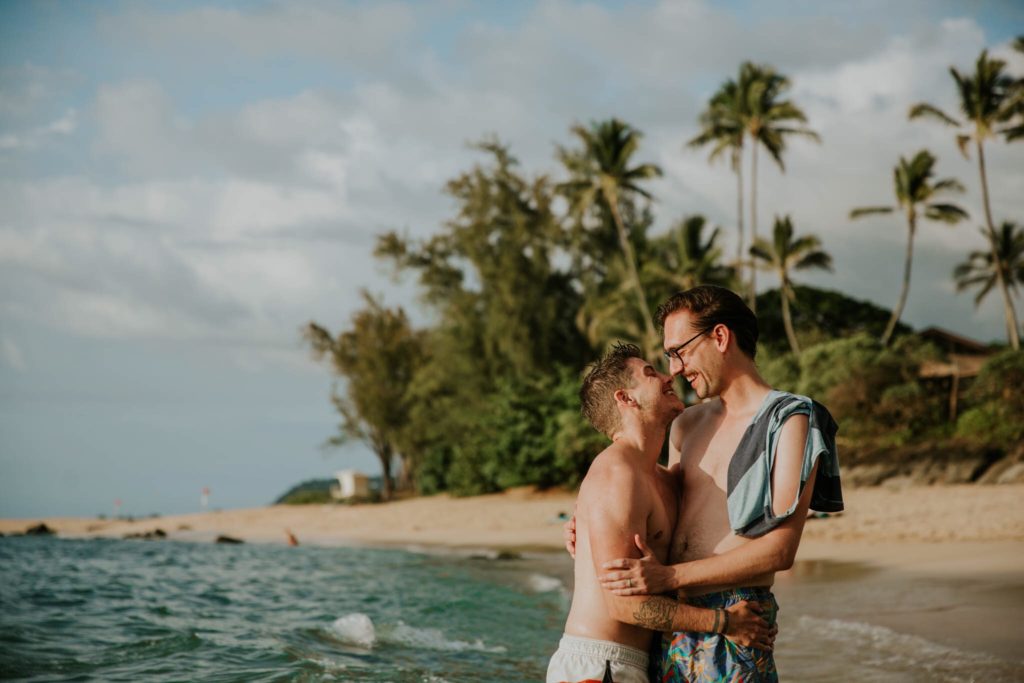
There wasn’t a day that I figured out, “Oh, I’m a man, and now I have to tell Sam” — it was just continuous. It was really helpful because I’d do a lot of processing with him as well. In my own way, I carried a lot of fear and guilt, and some of the conversations were bigger moments. I remember being like, “I’m pretty sure I’m not a woman, but I don’t know if I’m nonbinary or a man.”
He’d just reassure me and talk me through it, though fears of whether or not he’d be attracted to me or not as I started changing appearance were very prevalent. He was just always very reassuring. I don’t really understand how he’s so amazing. I still ask myself that all the time. But he kind of always said in his own way that if it’s about me being more me, he’s always been very sure that he loves me, so if there’s more of me to love, then even better.
PIP: Wow, that’s wonderful. While not everyone feels this way, I think so many of us are somewhere on the spectrum of the Kinsey Scale and can adapt if someone we love is transitioning. It helps that I’m bi, but I was able to do that with my partner.
TC: I think we’re on a spectrum too. It’s certainly a part of our lives and transitioning that does get the spotlight. On the face of it, people look at it and see “cis straight man stays with gay trans man, how is this possible?” I don’t know, it’s just love! I don’t have any answers for you!
It’s not always easy. Love is hard, and it’s messy. There’s so much wrapped in it, and the intricacies of attraction and sexuality and people’s egos. It’s a long road and it’s teaching me a lot about patience; it still is every day. Everyone has to deal with their body, but relearning my body all over again as a trans person is a very long process. It’s something I’ll probably be doing the rest of my life.
Where that intersects with attraction and sexuality and sex itself, it’s really muddy, murky water and so emotional, and I carry so much baggage around sexuality. I grew up in a community and family where sex wasn’t really discussed, and there was a lot of shame and miseducation or no education in many respects around sex and sexuality.
So combine that with body dysphoria and navigating worlds of consent and wanting to explore but really not always knowing how or what’s going to feel good or look good for you and your partner. It’s a lot. That’s just one aspect that comes to mind. There are many other ways in which our conversations have had to evolve and change, and the amount of patience it takes to walk that road is a lot.
PIP: As you transitioned, was it an adjustment for the two of you to be perceived by the outside world as a gay couple?
TC: It has been. It’s definitely noticeable. I’d be lying if I said it hadn’t changed how we move and interact in public places. In general, we’re not big into PDA. We’re definitely more aware just in general of our surroundings and people around us as we move through the world in public, whereas before I transitioned, we had the privilege of not having to be aware of that. It never felt like there were eyes on us or that we had to check for our safety.
Now those thoughts are there, and I think they’re often self-imposed and maybe just a bit of paranoia, but I think we all know there are instances of real danger out there that can happen. It’s been an interesting shift to feel that change, and not always know why, or if it’s warranted or not.
You’re concerned for your safety, but then we have occasions where, if we’re at a music festival, some drunk white lady will come over and tell us we’re the cutest couple in the world and ask how long we’ve been together!
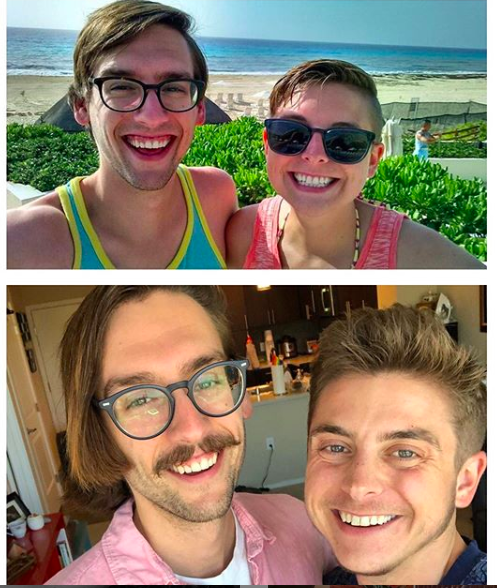
PIP: Definitely. You have a big following on Instagram — how did that happen? Was it unexpected?
TC: Every day, I’m like, “Why are all these people following me? Where did they all come from?” It’s unexpected. It’s been slowly growing over the last two years now; I think I started my account at the end of June 2017.
It was a recommendation from my therapist, bless her! Because at the time I wasn’t yet out, and I was still processing and understanding my gender. I didn’t have a place to put any of that, so it would be a place to receive some validation.
We’d talked about journaling, and that felt really isolating. At the time, I already felt really isolated, so I started really as a way to put something out into the world. It was pretty anonymous. I didn’t have a private account because I wanted people to be able to find me and I wanted to be able to interact with community. But my friends and family didn’t know about it at the time. It was really just a safe space for me to go and process my feelings and share and connect with other trans and queer people whom I’d been very quietly following on my old account where people knew who I was.
So I shifted all that over to a new account, and I just never stopped sharing. People have come, and the community has grown up around me. Now it’s a much bigger thing, seemingly, but it’s also very much the same it’s always been — just a place for me to share my thoughts, and maybe other people needed to hear some of those things too.
PIP: That’s amazing that you were once an anonymous person looking at the trans community on Instagram for hope and motivation — and now you’re one of those people who are thriving and giving others hope and inspiration when they need it most. What has it been like to have this platform?
TC: As you’re talking about it, it’s cliche, but I got chills. It blows my mind. It’s crazy. It just leaves me incredibly humbled and in awe all the time, when I allow myself to reflect on it. Because I just know I wouldn’t be who I am right now or where I am now if I hadn’t stumbled upon some of the accounts that I did.
I was talking with someone just the other day on the phone. This is an Instagram friend, someone I wouldn’t know if it weren’t for the Internet. Now we’re able to have this real life friendship, and they were the first person I found on the Internet. At the time, I was just blown away by their process and what they were saying and the words and feelings they were sharing — it was so much what I was feeling. It really was because of that vulnerability and their sharing that I was able to start to understand myself.
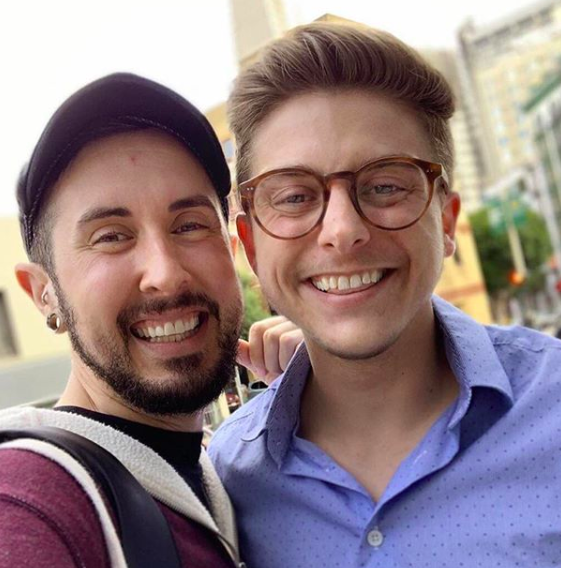
I found myself on this phone call recently, and I was like, “I don’t want to freak you out, I know we’re friends now, but I have to tell you this: you were so important to me in this way, and I know how that feels now. Now people say that to me.”
Some days my head isn’t fully in the game, and I’m like, “Oh yeah, thank you,” but I don’t let it hit me very hard. Other days, if I just take a step back and let that sink in, I know very deeply what it means to have someone be that person for you, and now to be able to be that person for so many people. There just aren’t words to really fully express what that means. It’s amazing.
PIP: I really believe it has the capacity to be lifesaving. I profiled a young trans man recently who grew up not knowing he was trans. He was struggling and suicidal, and a friend showed him a YouTube video of a trans guy, and he finally had words for it. He saw himself in it and realized he wasn’t alone or a freak, and he said that one guy literally saved his life. You never know how you’re impacting somebody.
TC: It’s everything. I really had a very shallow misunderstanding of social media going into this. When my therapist said, “You should start an Instagram,” I was like, “Meh, that’s not really my vibe,” I’ve never been that into social media. I had a Facebook just before starting this Instagram, and I’d shut it down because politics and family were all over the place. I was in an anti-social media stage, thinking it was vapid and vain and shallow.
And it can be — it can be thirst traps all day and nothing else, but my therapist really wanted me to give it a try. I’m so glad I did, because I think there’s something really special about the queer community and the ways that we find to connect with each other, even when we’re not able to physically be in each other’s lives. Some of the most profound friendships and relationships I have, I haven’t ever had the chance to meet them face-to-face, but our friendship is very real and what we mean to each other’s lives is very real, and I think that’s really powerful.
I can’t say if that’s truly specific to the queer community, but I think there’s some real magic in that, and that most of us have a very open and accepting heart. We have this vague understanding, or at least recognition that if we’re able to visible and share our stories — we know because we’ve experienced it — how important that impact can be. Having that kind of foundation for any community that large is really special. The community on Instagram has really changed my entire life. It’s crazy to think how anti-Instagram I was, and how it’s now shaped everything I do.
PIP: I love your Instagram posts on Gender Euphoria Friday; can you talk about what this is?
TC: I started the Gender Euphoria Friday hashtag right after I’d had top surgery. But I’d been reading and mulling over this whole idea of euphoria as an alternative or opposition to dysphoria — gender dysphoria being the ways in which many people feel that their bodies or beings aren’t aligning with how they feel on the inside.
When I first got on Instagram and was first transitioning, by nobody’s fault, the vast majority of the content I was ingesting was difficult. It was really negative and hard stuff. I mean, that’s really valid — there are so many reasons why, especially if you look at the trans experience. There’s a lot of difficulty and pain and a lot of negativity and really hard feelings to get through.
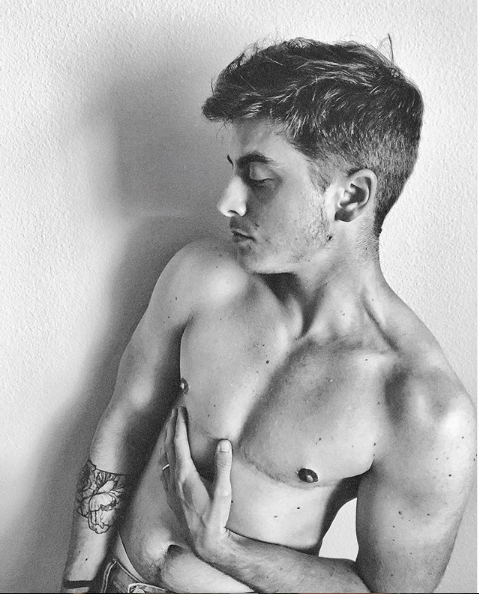
But at the time, I very rarely would come across much positivity in the accounts I was following. There wasn’t a lot of reflection and then repositioning things in a more positive state. It really felt at the time like I was just swimming around in this soup of negativity. To be in that space too, while you’re personally feeling a lot of negativity, can be amplifying. Of course it’s validating to know someone else is feeling the hard feelings that you’re feeling, but in some ways, it can make those loud feelings even louder. “Oh my God, we’re all in this, it’s so hard, when are things going to get better?”
Right before I’d started posting Gender Euphoria Friday, I’d stumbled across some posts out there, I can’t remember who it was, but they had thrown out the term “gender euphoria.” They spoke to it as, “Hey, there are moments when you feel really good in who you are.”
I was tossing around this idea that the trans experience isn’t all pain and it shouldn’t be painted in that way, because it can make it really scary and intimidating. I think the hardest part for me in coming out, despite having literally no education at all in what being trans meant — I didn’t know anyone, and I hadn’t ever heard what your life can be if you were trans. I had this misunderstanding that it was just going to ruin my life.
I thought, “How am I going to live this way? How are people going to accept me? I’m going to be way too much and way too confusing for most people. As far as I know, I won’t be able to get a job or do anything.” I had all these thoughts that everything was going to just blow up. It was going to be the end if I chose to really embrace myself in this way. It’s so unfortunate because it’s so not true, but I didn’t understand that.
I was getting to the point where it was just a lot of daily pain, but I realized, you know what, there are little moments that are happening here. This was through a lot of my own therapy too, allowing and accepting that things were uncomfortable and painful, but trying to sit down every day and be like, “What are some of the good things?”
Like, “I’m growing out my leg hair for the first time, and that’s validating. That feels good, the wind blowing through my leg hair feels good!” And letting that happiness sink in. Or for a trans man, maybe you get your first binder. They can be very uncomfortable, and we can all talk about how long summers are when you’re wearing a binder everywhere. But we do it for a reason, and the reason is how it makes us look and how that makes us feel. Instead of focusing on the sweat and the pain, focusing on the reason and why, which is that good feeling.
This is a drawn-out way of me saying it was a personal need of mine to shift my thinking out of dwelling on the negativity and the hardness of it all, and recognizing and starting to amplify the good. The way it unfolded in my own timeline is my understanding of gender euphoria and my need for it also coincided with me getting top surgery. After I had top surgery, it just kind of cracked me open emotionally and led to this new stage of my life where I really leaned in and started to really embrace this whole idea of euphoria.
I was just so tired talking about my dysphoria. I didn’t want to give it any more time in my day. I was like, “What does it do for me to talk about it endlessly?” So I just started talking about euphoria, and I wanted to make it a goal to hold myself accountable, and that’s what the hashtag came from. I thought, “If I make it a goal to do this every Friday, then at least if I have a bad week, I’ll feel some responsibility to reflect on the good that was there, at least once a week.”
PIP: It sounds like a beautiful form of gratitude practice!
TC: Exactly, and I think there is good for all of us no matter what stage we’re at. We might be going through really hard times where it may be impossible to see that good. That’s OK too; it’s valid to feel shitty, and we all feel shittiness. But it’s also important we continue to amplify our stories as trans people around all the good that happens in our lives. Because I don’t want to see any more movies or TV shows about trans people having shitty existences, trans people who are just down on their luck or getting murdered. I’m done with this!
Those are real things, and they’re very important, the violence against our community, and especially violence against trans women of color is real. We need to recognize it and gather around those people and protect them actively. We also need to recognize that even in all of our existences, and especially the most marginalized of us, there exists happiness and goodness and a reason that we choose to be ourselves. The reason we choose to be ourselves isn’t to share our dysphoria with the world — why would we want to do that? That’s a shitty, sad story! The reason we embrace ourselves is so we can share our goodness and happiness with the world and hopefully find more of that for ourselves along the way.
PIP: Definitely. I saw you recently joined Samantha Filoso as the co-host of the Trans IRL show after being featured on one of the episodes; why did you want to be a part of it?
TC: TransIRL has been amazing and a fun little whirlwind into something I didn’t ever fully see myself doing, but I’m glad I was doing it. I was a guest on the show with Samantha earlier this year. Where we just had an interview like we’re doing now, we talked about my life, and more specifically about my marriage and things like that.
I had met Samantha once before and we’d always been going back and forth on Instagram, we were like those Instagram friends where we keep up with each other’s lives. After the interview, she and the other producer/director, Addison, who helps run the entire show and is amazing — they called me and said, “This might be really weird and unexpected, but do you want to co-host?” I was like, “Can I just say yes immediately? Because that sounds awesome!”
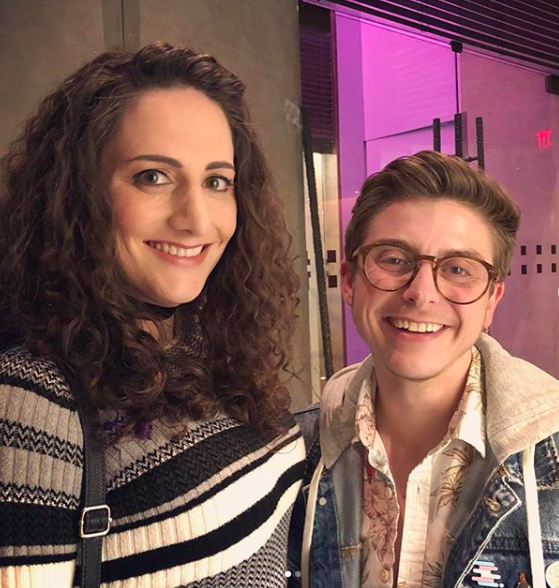
The reason I wanted to do that is because I think what the show is doing is really important. It’s very similar to what you’re doing: sharing stories and bringing awareness to all sorts of types of existences of trans people. We make an effort to always bring on people who also have something bigger to say, that have a bigger story around what it is they may be doing in their lives or what they’re really passionate about, or maybe it’s something specific to their transition or relationships they’re in. We try to really show as diverse a group of stories as we can as we continue to grow.
It’s been really fun to be a part of the show and to meet people. The show is live on YouTube pretty much every week; we do take some weeks off here and there. We form a vague outline for where the conversations are going to go, but I think it’s really important that it is live, so we’re having these conversations in real time; we’re processing and trying to understand each other in real time. People get to see that and interact with that, and we take live questions at the end of every show.
I think it’s been really helpful for people to just be able to go to this spot, either live or after the show once a week, and learn about a new trans person to them, or maybe it’s someone they’ve been following and know of and they get to learn more about their story. And maybe see themselves in the story or learn something new about gender or any of the topics we go through.
We try to make it a space that’s both validating and educational all at the same time. I think it’s really important work. I certainly wouldn’t be able to do it on my own, I don’t have the tech savvy skills to make it all happen, but Samantha and Addison have put together a really amazing thing, and I’m just grateful they wanted to bring me on and be a part of it.
PIP: I saw you also do writing and poetry; is that something you’ve been exploring more lately?
TC: Writing has been this evolving passion of mine. I’m trained in engineering and science, and that’s my day job. But as I’ve grown and utilized my Instagram page, I’ve been doing lots and lots of writing; it’s the main form of how I process my feelings and also how I communicate those feelings to other people. That’s primarily been through the existence of my Instagram page, which is like mini little blog posts.
It’s been a process over time, but I’ve really been allowing myself to accept, or step into my identity as a writer. I was pretty intimidated to say, “I’m a writer and a poet.” I’m someone who writes and maybe writes some poems. I’m getting to a place where I’m like, “No I’m someone who owns it.” You don’t have to publish a book to be a writer, you don’t have to do poetry slams or be a touring poet to call yourself a poet. If you do it and you love it and it brings you joy, you can claim those things and you are those things.
That’s been a little self-identity process that I’ve been going through to get to the point where I recognize this is what I’m passionate about and I think I’m good at it. Whether others think I’m good at it is irrelevant as long as I enjoy it. Claiming those identities in those terms has been really validating for me, even if it’s just me validating myself and saying, “You can do this.”
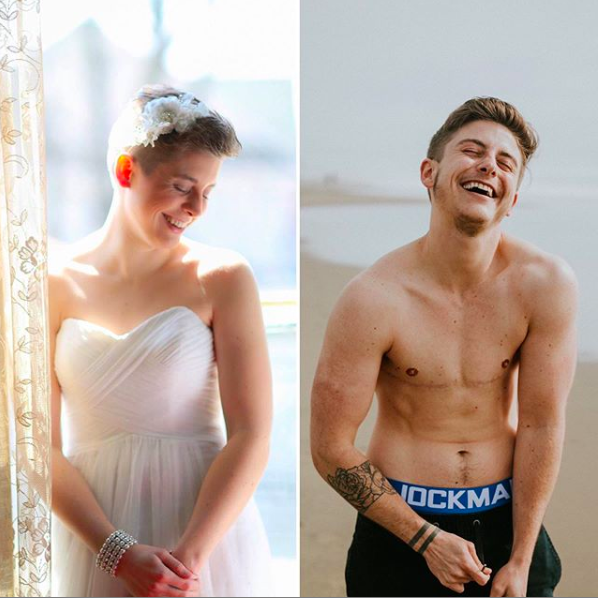
Longer-term goals, I want to get to a place where I’m doing this sort of community engagement and writing and poetry and activism and talking with people and being a part of their queer community — I want to get there more full-time. But it’s going be a longer process for me, because capitalism; I have to make money and do things. I have a lot of emotions wrapped up in the capitalist machine of creating.
PIP: Well, as a professional writer, I’ll share that I think you have a beautiful way with words. I love your posts and I think you’re gifted!
TC: Thank you, it really means a lot when people share with me how they’ve received my writing and what I have to say. It means so much to hear that, and it’s important that I hear that and let myself accept that, because I think we probably all have our own ways in which being in our own head 24/7 is a tricky place to be.
When you’re sitting writing post after post, you’re trying to figure out if and when you can ever make your passion a full-time reality, it’s really hard to continually remind yourself that you’re worth being able to do that and finding a way to do that. And that your talent and what you create has real value. It’s just constantly having to do the work of reassuring yourself that what you do is valid.
PIP: I totally understand. I pour my heart and soul into this blog for no pay, and while I’d love to get sponsors and advertisers, it’s hard to find them, and I know the LGBTQ community can be hard on people who seemingly “sell out.”
TC: It’s hard. This is something I’ve been processing for a long time, especially as my interests in doing all this work grow and I’ve been spending more and more time either writing Instagram posts or creating the website and things like that. It’s taken me a long time, and I still have days where I have to sit myself down and reassure myself that the work I’m doing is real work. It’s hard to convince yourself that it’s real work when it is often so often incredibly personal, when it’s digesting your own story and taking your own photos.
I think it’s really easy to tell yourself it’s just a hobby. And it can be; it is in many ways for sure. But I’m getting to the point where I’m like, no, this is what I’m really passionate about, not just my own story but other people’s stories. As I invest more time in it, I’m having to teach myself that I need to recognize that my time is valuable and how I use that is important. When I create, I deserve like any other artist to be compensated for creating that thing. It’s tricky ground, because how do you do it ethically? And keep yourself safe?
With my career and day job, it’s not something I find myself really passionate about at all anymore. I have days where I’m like counting down, “How much longer do I need to do this? How much longer can I do this and still feel good about what I’m doing and who I am?” These are hard things. It’s funny, sometimes I joke with myself, “So you came out as trans, but you’re still afraid to maybe quit your job one day?” When you do anything like come out as trans, everything gets graded on this scale, where I sometimes jokingly, sometimes seriously, to myself I’m like, “Get over yourself — you came out as trans and you can’t do this thing?”
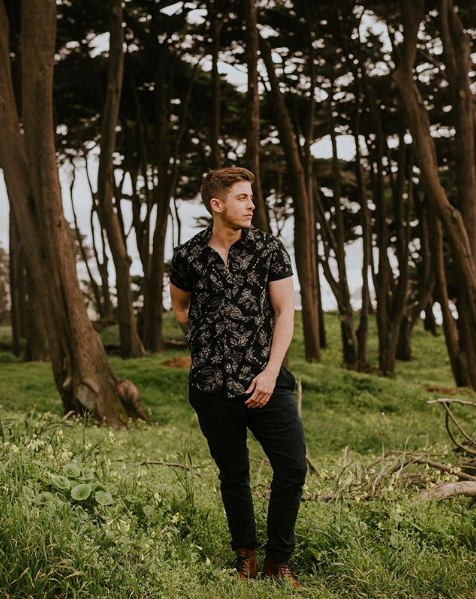
PIP: For sure. I have those moments, like, “Why am I spending all my free time on something I value but am not getting compensated for?” But then I’ll get a message from a stranger thanking me for blog posts that inspire or help them, and it keeps me going!
TC: Yep, those moments are what continue to make it worthwhile. It is the reality of sharing stories and pouring time and effort and our own money into making ways for these things to be shared is a real thing, and it’s hard to continue sometimes.
Monetizing things is going to forever feel really conflicting. I think it’s good — I hesitate when I say that. It’s hard as a queer person who’s a creator; you’re already working against a lot of things. To carry the emotional load of having to feel conflict and difficulty over wanting to make money for the time you spend is often not a fair burden to put on someone. But awareness about how and what we choose to interact with and to share and to allow, sponsor us, and things like that — it’s very valuable to have that awareness.
It’s more of a strength than not, but it is an additional burden to carry around with yourself of always having to convince yourself of your worth and value. It’s something that’s just so innate to a lot of people, but especially a lot of people in the queer community, whether or not they’re talking about getting paid for creating or talking about existing. Convincing yourself of your value is a hard thing to do.
I run across this a lot, whether it be selling my own merchandise or doing my own things, where I get some feedback occasionally that’s like, “Are you sure you should be asking a marginalized community to spend money on you?” That’s a really hard thing to hear, because there’s truth in it, but it’s also like, this is the community I’m part of! I don’t know what you want from me! Do you just think I should never be paid for this?
We live in a society where I have to make money. If I’m not making money for this time I’m spending, I’m not going to be able to do any of the things the people in my community value of me. I’m not going to have energy or time to devote to this. So there’s this very difficult, sometimes toxic cycle of self-shame, even within the community. It’s good that we’re being aware of what other people are doing, and I think there are definitely times when people need to be called in on different things. Maybe they just need to be educated on certain brands, and that’s something I’m always open to.
But policing other queer people for trying to support themselves as creators is something I have to take a hard stance against. These people deserve money for what they create because it’s valuable. When we talk about society, the thing that has value and allows us to move through it is money. If I sell merchandise, you don’t have to buy it. If you want it, that’s great, and it’s there for you to buy. You don’t have to buy a t-shirt to follow me, you can still follow me, and there will be plenty of free content for you to digest.
But if you want to support me, I want to give you ways to do that, because I think it’s important that the people we really care about, we find ways to make an impact in their lives in a real, tangible way. And that, for many of us, is money because we don’t have a lot of it.
Keep up with Thomas Cole on Instagram @creating_thomas and on his website.

